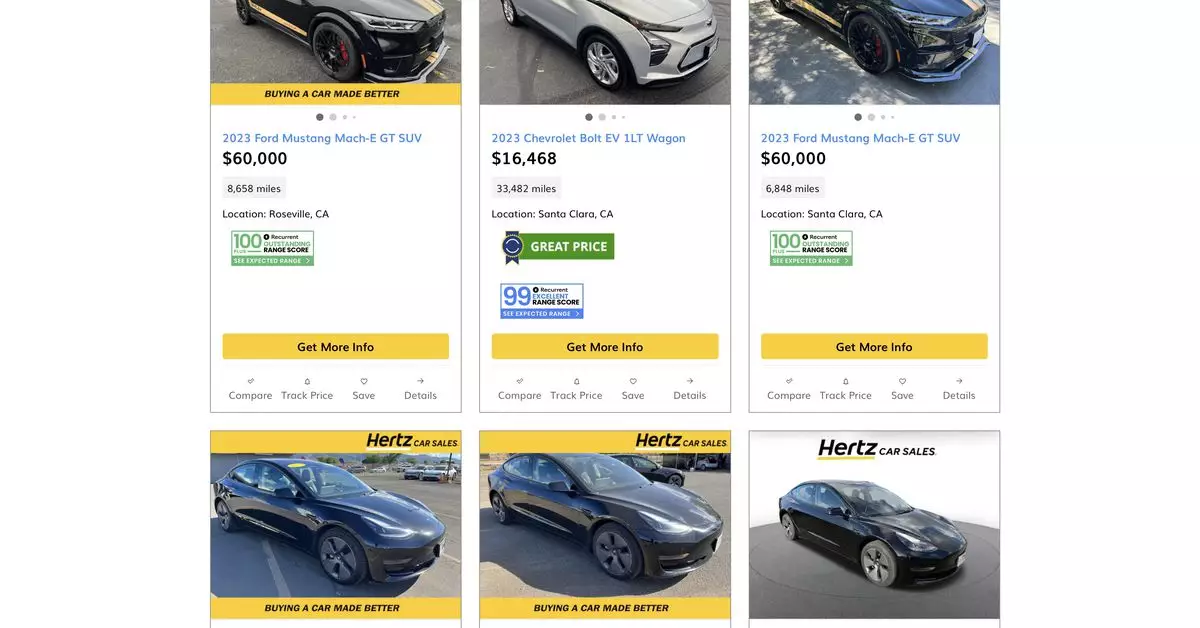In an innovative move, Hertz is redefining its approach in the electric vehicle (EV) market by extending unique purchasing options to its rental customers. Recent reports indicate that the rental giant has reached out to various EV renters, enticing them with low-cost buyout offers for vehicles they are currently leasing. This strategy serves a dual purpose: it not only empowers consumers with the chance to acquire their rented vehicles but also allows Hertz to capitalize on the burgeoning interest in electric cars.
A noteworthy instance comes from a Reddit user who rented a 2023 Tesla Model 3 and was presented with a purchase option priced at $17,913. This figure is competitive when compared to similar listings on Hertz’s Car Sales platform, especially considering that the rented vehicle had approximately 30,000 miles—a relatively low figure in the used car market. Additionally, another customer reported an appealing offer for a 2023 Chevy Bolt at $18,442, while a Polestar 2 renter saw a price of $28,500. These prices not only reflect the current market trends but also hint at Hertz’s strategy of leveraging its rental inventory to meet the rising demand for cost-effective electric vehicles.
Building further confidence among potential buyers, Hertz accompanies these offers with a limited powertrain warranty, covering 12 months or 12,000 miles, alongside a seven-day buy-back guarantee. This aspect is particularly attractive for consumers who may harbor concerns about purchasing a used vehicle, especially in an evolving market where new technologies like electric propulsion and smart interfaces are continually advancing. By ensuring a safety net, Hertz may be significantly enhancing the attractiveness of its used EVs.
Prior to these changes, Hertz faced challenges in sustaining its ambitious plans to electrify its fleet, stemming from consumer hesitancy and maintenance difficulties tied to certain models, particularly the Tesla Model 3. The company’s decision to scale back its focus on acquiring vehicles like the Polestar 2 reflects a nuanced understanding of consumer behavior and a reassessment of its operational strategies. After previously marking a staggering 30,000 Teslas for sale from its rental catalog, Hertz appears to be recalibrating its approach to better align with customer demands and the realities of the market.
The potential success of Hertz’s new sales strategy hinges on both the evolving landscape of electric vehicles and the shifting perceptions of consumers regarding ownership. As electric vehicles continue to gain traction, Hertz’s initiative to facilitate a seamless transition from rental to ownership could very well redefine how consumers view car rental companies. By doing so, the brand not only leverages its existing inventory but also positions itself as a pivotal player in the electric vehicle sales arena, catering to a niche that local dealerships may overlook. As consumer interests evolve, Hertz’s adaptability could herald a promising future for the company in the electric vehicle sector.

